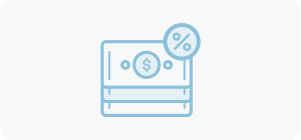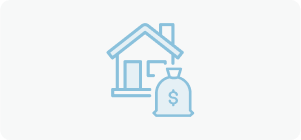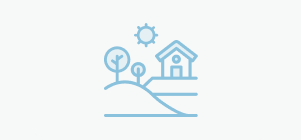Utah Condo Mortgage Loan Rates - Apply Today
Our condo loan officers work on salary, not commission, we pass on the savings to you.
- No personal information required
- No upfront deposit for appraisal or credit report required
- Expect to save money

As of January 11, 2026, Utah 30-year fixed rate conventional mortgage rates are 5.625% (5.725% APR), and 4.99% (4.99% APR) for a 15-year fixed-rate conventional loan (FYI: Utah condo mortgage rates are typically slightly higher than these rates due to individual borrower circumstances and additional costs associated with Condo associations).
Due to unique condominium financing requirements, condo loan rates displayed on our website are estimates and may vary. Call us for the most accurate quote.
If you’re dreaming of owning a home in Utah, a condominium might be an affordable and convenient option. However, getting a condo mortgage could involve some additional challenges versus being approved for a mortgage for a traditional home. While condominiums are often more affordable than single-family residential homes, mortgage lenders often have stricter requirements for condominium purchases.
Condo home loans typically have higher interest rates and additional closing costs that you might not have to pay when getting a conventional home loan. These challenges do not mean that you won’t be able to obtain a condo mortgage, but you need to understand them so you can be prepared. Here are some key differences between condo loans vs. standard mortgages from the home loan experts at City Creek Mortgage so you know what to expect.
Explore Condo Mortgage Rates Using Our Calculator
How Much Does a Condo Cost in Utah?
In our recent analysis of 350 condos listed for sale in Utah during August 2023, we found that the average asking price stands at $590,884. Additionally, the median price per square foot is pegged at $328. We know what you’re thinking. “Is that less expensive than a single-family home?” Yes, it’s still less expensive than the average single-family home. We analyzed 341 Utah single-family homes, and the average cost is $791,055. However, the median price per square foot of a single-family home home in Utah is $247.

Speak with a Condo Loan Officer – 801-501-7950
Interest Rates and Loan Types for Condo Mortgages
Condominium mortgage lenders typically charge higher interest rates than they do for single-family mortgages. The interest rates are higher because lenders view condominium loans as carrying more risk than standard home loans.
Conventional Condominium Mortgage Interest Rates
Fannie Mae charges mortgage loan lenders a fee of 0.75% of the purchase price upfront for condominium mortgages when borrowers don’t make a sizable down payment. Under the old rules, buyers had to put down 25% for a loan-to-value (LTV) ratio of 75% to avoid the upfront fee charged to the lender. However, the rules changed on May 1, 2023. Now, the LTV threshold is 60%, meaning you would need to make a 40% down payment for your lender to avoid the upfront fee. Lenders typically pass this upfront fee on to borrowers by charging a higher interest rate ranging from 0.125 to 0.25% more than the interest rate for a traditional conventional mortgage.
Over the life of the loan, the slightly higher interest rate means you’ll pay significantly more in interest than you would if buying a standard home at the same price. To avoid paying a higher interest rate, you can put 40% of the condo’s value down or pay the fee Fannie Mae charges the lender upfront. Most people in the market for condominiums can’t afford a 40% down payment, however.
FHA Condominium Mortgage Loan Interest Rates
A loan backed by the Federal Housing Administration (FHA) can be an attractive option for first-time homebuyers because of the smaller down payment requirement and less stringent credit requirements. Since an FHA loan is a government-backed loan, lenders might be more willing to approve your application because the FHA will step in and pay the lender if you default on your mortgage. With an FHA-backed mortgage, you can get approved with a down payment of as little as 3.5% while enjoying the same interest rate that you would pay if making a larger down payment. There are a couple of drawbacks to going with an FHA condo mortgage, however.
The Federal Housing Administration charges an upfront fee for mortgage insurance of 1.75% of the total loan amount. This upfront MIP can be paid during closing or rolled into your balance. You’ll also have to pay an annual MIP that varies based on your loan’s term, your loan-to-value (LTV) ratio, and the size of your down payment. While you might not have a higher interest rate for an FHA-backed condo mortgage, the costs of your required mortgage insurance premiums can significantly add to your total monthly payments.
VA Condo Mortgage Interest Rates
If you are a military service member or eligible veteran, buying a condominium with a VA-backed mortgage might be a good option. VA-backed mortgages typically have less stringent credit requirements, require minimal or no down payments, and have lower rates of interest than other mortgages. However, both you and the condominium must qualify. You can check with the Department of Veterans Affairs to obtain a condo report to see whether the property you are considering is approved by the VA.
USDA Condo Mortgage Interest Rates
It’s possible to get a USDA-backed mortgage for a condominium in Utah. However, the condo must be located in an approved rural area. Lenders will be required to go through an additional underwriting process to approve you for a USDA-backed condominium mortgage. USDA-backed mortgages are designed to help people with low to moderate incomes obtain mortgages so that they can become homeowners.

Down Payment Requirements
To obtain the best rates for a conventional condo mortgage, you’ll need to make a down payment of 40% or pay the fee charged by Fannie Mae to the lender of 0.75% upfront. By contrast, if you have excellent credit, you can obtain the best rates when financing a single-family home with a conventional mortgage by making a 20% down payment.
While you can get an FHA-backed mortgage to purchase a condominium with as little as 3.5% down, you’ll have to account for the costs of the upfront and annual MIPs. If you are thinking about buying a condominium in a new development, you will have to put down 10% for an FHA-backed condo mortgage if the development doesn’t include a warranty of 10 or more years.
Homeowners Association (HOA) Fees
While a condominium might cost less than a single-family home and come with a correspondingly lower mortgage payment, you shouldn’t overlook the HOA fees you’ll have to pay to live in the community. HOAs are responsible for repairing and maintaining the exteriors of the buildings, commonly shared facilities, and the grounds. They fund these repair and maintenance costs by charging condo owners monthly fees that must be paid in addition to their mortgage payments.
While HOA fees can vary, they can range from a low of $100 per month to $500 or more. In exchange for paying these dues, you won’t be responsible for maintaining your building’s exterior, paying for a new roof, or maintaining the grounds. You will still be responsible for repairs and maintenance of your condo’s interior, however.
HOA fees for living in a condominium can be sizable and should be accounted for before you move forward with a purchase. Make sure you understand what the fees are. You should also know that HOA fees aren’t fixed and can be raised by the HOA if it deems an increase to be necessary.
Condominium Qualifications
Lenders will usually have very specific criteria when it comes to approving mortgages for condominiums. The FHA, USDA, VA, Fannie Mae, and Freddie Mac have set standards that condominium developments must adhere to. For instance, the FHA, Freddie Mac, and Fannie Mae stipulate that at least 50% of the units be owner-occupied. A single owner is restricted to owning no more than 10% of the units in a development unless it’s new. Conventional condo loans, as dictated by Freddie Mac and Fannie Mae, require HOAs to allocate at least 10% of their annual revenues to a reserve fund. Furthermore, the FHA mandates a financial audit of the property within the past 12 months, which limits the number of FHA-approved condos available.
The VA maintains a list of approved condominium properties. Meanwhile, the USDA mandates that the property be situated in a designated rural area and receive approval from entities like the VA, FHA, Freddie Mac, or Fannie Mae.
For those unable to secure a conventional or government-backed mortgage, portfolio lenders present an alternative. However, they might charge higher interest rates and require substantial down-payments, sometimes up to 30%.
What Does a Condo Need to Qualify For a Loan?
To be eligible for financing, a condo must meet several qualifications:
- Condo Association Health: The financial health of the condo association is scrutinized, especially regarding sufficient reserves and the absence of pending litigation.
- Owner Occupancy Rate: A majority of the units should preferably be owner-occupied.
- Insurance: Adequate insurance coverage, including hazard, liability, and possibly flood insurance, is a must.
- Delinquency Rates: No more than 15% of condo owners should be delinquent on their association dues.
- Property Condition: The condo should be in commendable condition without significant repair needs. An appraisal is typically mandatory.
- Legal Documentation: All pertinent legal documents, like bylaws and CC&Rs, undergo review.
- Pending Litigations: Ongoing litigations can deter lenders due to potential financial instability risks.
- Special Assessments: Upcoming special assessments are scrutinized as they might affect the condo association’s financial stability.
- Commercial Space Limitation: Condominium developments shouldn’t have over 35% of their square footage dedicated to commercial use due to the associated risks.
Standards for Condo Developments
Lenders employ rigorous requirements for condo developments. They request documents from the HOA or management company to ascertain details like the percentage of owner-occupied units, units owned by a single investor, and the association’s insurance policy.
Both the applicant and the condominium must gain approval before securing a mortgage. Lenders assess the percentage of owners behind on their HOA dues, and if it exceeds 15%, the application faces rejection. The condo association should have a master insurance policy and be free from litigations that might financially jeopardize the association.
Condo Buyer Eligibility & Requirements
To be approved for a mortgage to purchase a condominium, you’ll also have to meet the requirements for the loan for which you are applying as follows:
Conventional Condo Mortgage Buyer Eligibility
To obtain a conventional mortgage to buy a condo, you will likely need to meet the following requirements:
- Have a minimum credit score of 620 or higher
- Be able to put at least 3% to 5% down with excellent credit or much more with moderate credit
- Have a debt-to-income (DTI) ratio of less than 36%
- Intend to live in the condo as your primary home
FHA Condo Mortgage Buyer Eligibility
You’ll need to find an FHA-approved condominium before you can get an FHA-backed mortgage to finance your purchase. You’ll also need to meet the following minimum requirements, but individual lenders may have stricter criteria:
- Minimum credit score of 580 (many lenders require a score of 620)
- Down payment of at least 3.5% or higher with a lower credit score
- DTI ratio of less than 50%
- Live in the condo as your primary residence
VA-Backed Condo Mortgage Buyer Eligibility
To obtain a VA-backed mortgage to purchase a condo, you’ll need to meet the following minimum requirements in addition to the property’s requirements:
- Be a military service member, an eligible veteran, or an eligible surviving spouse of a veteran
- No minimum required down payment
- No minimum required credit score (lenders might still have minimum score requirements)
- If your DTI is greater than 41%, you’ll need to have compensating factors such as a strong credit score
- Live in the condominium as your primary residence
The VA requires the entire development to be approved and will not approve a single unit by itself.
USDA-Backed Condo Mortgage Buyer Eligibility
To get a USDA-backed mortgage to purchase a condo, the property must be located in an eligible rural area of Utah as determined by the U.S. Department of Agriculture. You’ll also need to meet the following requirements as a borrower:
- Meet income requirements
- No required down payment
- No minimum credit score
- Maximium DTI ratio of 41%
- Condo will serve as your primary residence
 What to Do if You Want to Get Approved for a Condo Mortgage
What to Do if You Want to Get Approved for a Condo Mortgage
If you want to buy a condo and need financing, make sure to carefully research properties. The development should be financially healthy and well-run, and it should also be primarily owner-occupied. If the development includes mostly tenant-occupied units, you might not be approved for a mortgage to purchase a unit there.
Investigate different types of loans and financing options. The mortgage experts at City Creek Mortgage can explain the different options and whether the development will have to be approved first before you can obtain a mortgage.
When you apply for a mortgage to buy a condo, you should expect to go through a longer closing process and pay higher closing costs. City Creek Mortgage will provide a detailed estimate listing all of the closing costs and fees you might have to pay for a condo mortgage so you can make an informed decision.
Consult the Mortgage Experts at City Creek Mortgage
If you are considering buying a condominium in Utah and plan to finance your purchase with a mortgage, you should speak with the mortgage experts at City Creek Mortgage. While condos have some distinct advantages such as lower sales prices and fewer maintenance requirements, getting a mortgage to buy a condo can come with additional obstacles. We work with many potential lenders and prioritize helping our clients find the best mortgages to meet their needs at the lowest cost. Call us today to schedule an appointment at (801) 501-7950.












 Utah First Time Home Buyer Grants & Programs
Utah First Time Home Buyer Grants & Programs